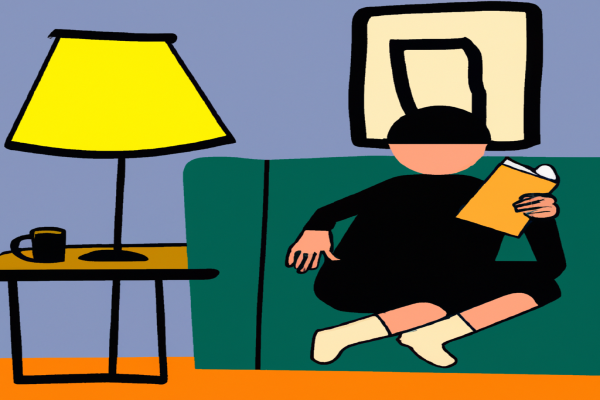The Immortal Life Of Henrietta Lacks: Summary

The Immortal Life Of Henrietta Lacks is a nonfiction book about the life and legacy of an African-American woman named Henrietta Lacks. In 1951, a sample of her cells was taken without her knowledge or consent and used to create the first "immortal" cell line known as HeLa, which has been used in countless medical experiments and treatments, including the development of the polio vaccine. The book follows the story of Henrietta's descendants as they grapple with the impact that her cells have had on modern medicine, as well as their own complicated relationship with her memory.
Want to know more?
What is The Immortal Life Of Henrietta Lacks about?
The Immortal Life of Henrietta Lacks is a non-fiction book written by Rebecca Skloot that tells the story of Henrietta Lacks, an African-American woman whose cells were used in medical research without her knowledge or consent. The book explores key themes such as racism, exploitation, and the ethical implications of scientific research. Additionally, it examines the intersection between science, medicine, and race and the impact of Henrietta's cells on modern medicine. Ultimately, the book serves to honor Henrietta's legacy and bring attention to issues of bioethics and medical justice.
The Immortal Life Of Henrietta Lacks: Book Club Questions
- How did Henrietta's story make you feel?
- What do you think was the most significant event or theme in the book?
- How did the ethical implications of HeLa cells affect your opinion of the book?
- How did Rebecca Skloot's writing style impact your reading experience?
- What lessons can be learned from the Lacks family's experiences?
- How did society's view of medical research and treatment change after Henrietta's story was revealed?
- What would have been different if Henrietta had known about her cells being used for medical research?
- What do you think are the main differences between the contemporary healthcare system and that of the 1950s?
- What is your opinion on how Henrietta's legacy has been handled by the medical community?
- Was Deborah successful in her mission to learn more about her mother, Henrietta?
What to say about The Immortal Life Of Henrietta Lacks
- The Immortal Life of Henrietta Lacks is an inspiring story of a woman who unknowingly left a legacy that has had a profound impact on the medical world.
- This book is a great example of how science and ethics can sometimes conflict.
- I found the author's use of narrative to tell the story very effective in bringing this complicated history to life.
- The Immortal Life of Henrietta Lacks gives readers an opportunity to understand the importance of informed consent and patient autonomy.
- It's amazing to think that Henrietta was able to make such a substantial contribution to medical research without ever knowing it or even giving consent for it.
- This book really highlights the potential power that individuals have to shape history, even when they are not aware of it at the time.
- It is incredible how much we can learn from stories like Henrietta's, as well as what we can do with that knowledge to help others in times of need.
- One of the most important lessons from The Immortal Life Of Henrietta Lacks is the importance of treating all individuals with respect and dignity, regardless of their background or circumstances in life.
- Through its exploration of the ethical implications of using human tissue samples for research, this book shows us how complex some issues can be and why it is important to take time to consider all aspects before making decisions or taking action.
- The Immortal Life Of Henrietta Lacks provides readers with an eye-opening look into scientific discovery and its relationship to race, class, and gender inequalities in society today.
Top 5 Quotes from The Immortal Life Of Henrietta Lacks
- "If you want to do good science, you have to use good cells."
- "No matter how much we might try to ignore it, the scientific power of raced has shaped and continues to shape the world we live in."
- "When you help somebody, you supposed to help them, not hurt them more."
- "We all have some HeLa in us now."
- "Scientists are supposed to be dispassionate observers of nature. But when it came to Henrietta and her family, they were anything but."
Adaptations of The Immortal Life Of Henrietta Lacks
1. The Immortal Life of Henrietta Lacks (film) – A 2017 HBO film adaptation of the book directed by George C. Wolfe and starring Oprah Winfrey, Rose Byrne, Renée Elise Goldsberry, and Courtney B. Vance. 2. The Immortal Life of Henrietta Lacks (radio play) – A 2017 radio play adaptation by WYPR-FM in Baltimore for their Radio Tales series. 3. The Immortal Life of Henrietta Lacks (PBS special) – A 2018 PBS special featuring interviews with family members and scientists about the impact of Henrietta’s cells on modern medicine. 4. The Immortal Life of Henrietta Lacks (podcast) – A 2018 podcast series from Panoply Media featuring interviews with people whose lives have been deeply affected by her legacy. 5. The Immortal Life of Henrietta Lacks (stage play) – A 2019 stage adaptation produced by Center Stage in Baltimore, which was followed by a national tour in 2020.
Other books by Rebecca Skloot
- The Nocturnists: A Collaborative Storytelling Project
- The Best American Science Writing 2011
- The Immortal Life of Animals
- The Vaccine Race: Science, Politics, and the Human Costs of Defeating Disease
Did you know?
Henrietta Lacks' cells, known as HeLa cells, are the first immortalized human cell line ever developed and are still used in medical research today.




